
A large excerpt from the tribute to Albert Ayler concert presented at Fondation Cartier, Paris on December 2nd 2010 with Joe Mcphee, Evan Parker, Barre Phillips, John Tchicai, Jean-Luc Cappozzo, Jean-Jacques Avenel, &c. &c.
Out of Stock
Quantity in Basket: None
Log In to use our Wish List
Shipping Weight: 5.00 units
Sample The Album:
Jean-Jacques Avenel-doublebass
Jacqueline Caux-spoken words
Jean-Luc Cappozzo-trumpet, flugelhorn
Steve Dalachinsky-spoken words
Simon Goubert-drums
Rapha‘l Imbert-saxophones
Sylvain Kassap-clarinets
Joelle Leandre-doublebass, vocals
Urs Leimgruber-soprano saxophone
Didier Levallet-doublebass
Ramon Lopez-drums
Joe McPhee-tenor saxophone, flugelhorn
Evan Parker-saxophones
Barre Phillips-doublebass
Michel Portal-bass clarinet
Lucia Recio-vocals
Christian Rollet-drums
John Tchicai-alto saxophone
Click an artist name above to see in-stock items for that artist.
UPC: 3760131270402
Label: RogueArt
Catalog ID: ROG-0040
Squidco Product Code: 16394
Format: CD
Condition: New
Released: 2012
Country: France
Packaging: Digipack
Recorded on December 2nd, 2010 at Fondation Cartier, Paris, France by Jean-Marc Foussat.
"Would it be that when everything finishes that everything starts? Rather than a postlude or a coda, the five minutes a cappella by Joe McPhee on the tenor saxophone placed here in thirteenth position, sound like a song of love and hope coloured utopia which condenses the invisibility of lives which are here and then are no longer here.
from the effervescence of an aviary where chirpings and warbling intersect (from Raphael Imbert, Urs Leimgruber, McPhee, Evan Parker and John Tchicai each sax seeming to seek its place in the mosaic puzzle of the memory) to promising flighty duels, then to a fine line drawn trio - of shivering brass (Cappozo), woody reed (Kassap) and simmering percussion (Rollet) - progressively repeating - pounding towards an exacerbation of a growling or a gentle explosion, a prelude to a dance of words like as many sparks (Dalachinsky) roped together con arco and solemn pizzicatos (Léandres, Phillips). Thundering alternations of the funeral echoes of the talking drums of Ramon Lopez and the deep melodies of a Portal who from 1976 (in Chateauvallon) paid homage to aylerian Angels - placed here, the trio of the basque musician with Lopez and Phillips seems to preface the outburst of husky lyricism of his instrumental counterpart (Avenel-Mcphee-Goubert ), then, as if to underline McPhee's multi-instrumental expertise, the latter was to engage with Cappozzo in a gay dialogue of trumpeters, a mixture of muffled pistons, effects of breathing and brass tirades with scents of a mini-fanfare. Logically it's a sort of "duo" that follows: a dialogue with himself, by the saxophonist Evan Parker by means of the virtuosity of circular breathing permitting as always this fascinating diphonism. As for the penultimate phases of this polyphonic hirsutism, fortified by explosions, whirlwinds, chants, howls, bubblings and very high pitched sounds, everything happens as if the last cry recalled, as in a trance, a certain aylerien spirit - did not Robert Schumann write "Music is what permits us to speak with the heavens"."-Philippe Carles, from the liner notes
Artist Biographies
• Show Bio for Jean-Luc Cappozzo "Jean-Luc Cappozzo was born in Belfort, France, in 1954. He started playing the trumpet in the local orchestra of his native town where he performed both jazz and classical music. Following a meeting with the diatonic accordionist Serge Desaunay, he started to perform traditional music as well. His meeting with Dizzy Gillespie in 1984, who invited him to participate in his concert, was a turning point in Jean-Luc Cappozzo's career. In 1988 he obtained the State Diploma of Professor of Jazz and subsequently taught trumpet improvisation at the Music School of Lyon (CNSM). He has taken part in various groups of musicians of the ARFI. He has been a member of he Louis Sclavis Quintet "L'Affrontement des Prétendants" and of Claude Tchamitchian's "Grand Lousadzak". In addition he has played in Sophia Domancich's Quintet "Pentacle", the Denis Fournier Quartet and with Joelle Léandre's Quintet "Fragments et suite lyrique". He has formed a quartet with Jean Aussanaire , Rémi Charmasson and Bernard Santacruz and created a musical work "Du Vent chez Johannes" with the Johannes String Quartet. In 2005 he joined the European Mythical Orchestra: the Globe Unity Orchestra. He has played with the Apollo Trio and composed duo s with the cellists Joelle Léandre or Eric Brochard, the singer Géraldine Keller, the drummer Paul Lovens, the tuba player Michel Godard, the pianist Umberto Petrin and the trumpet players Axel Dorner or Herb Robertson. Actually, he is playing with: - "The Bridge" with Joëlle Léandre (cb), Bernard Santacruz (cb), Mickaël Zerang (dms) and Douglas Ewart (sax - flûte) - - " Can You Hear Me" of Joëlle Léandre (cb) - " 2 ème étage " with Christine Wodrascka (p) and Gerry Hemingway (dms) - Duo with Famoudou Don Moye (dms) - Duo with Cécile Cappozzo (p) - Quartet à l'Ouest with Jean Aussanaire (sax), Eric Brochard (cb) and Alfred Spirli (dms) - Duo with Géraldine Keller (voice) - Duo with Eric Brochard (cb) - Trio with Didier Lasserre (dms) and Paul Rogers (cb) For his strength, his creativity, his magnificent sonority, the clarity of his phrasing, Jean-Luc Cappozzo is today an indispensable trumpet player on the European musical scene and is in increasing demand. Jean-Luc Cappozzo, powerful and mellifluous trumpet player, is "a discreet man who would blush to be labeled one of the most relevant soloists and the most complete on the French jazz scene. He may blush".(S. Siclier, Le Monde 1/08/2002)" ^ Hide Bio for Jean-Luc Cappozzo • Show Bio for Steve Dalachinsky "Steve Dalachinsky is a New York downtown poet. He is active in the poetry, music, art, and free jazz scene. Dalachinsky was born in Brooklyn, New York in 1946, and grew up in the Midwood section of the borough. He has been writing poetry for many years and has worked with such musicians as William Parker, Susie Ibarra, Matthew Shipp, Roy Campbell, Daniel Carter, Sabir Mateen, Mat Maneri, Federico Ughi, Loren Mazzacane Connors, Rob Brown, Tim Barnes, Kommissar Hjuler, and Jim O'Rourke. He has appeared at most editions of the Vision Festivals, an Avant-jazz festival involving many of these musicians. At one time he also appeared frequently at Michael Dorf's club , the Knitting Factory. He currently lives in Manhattan with his wife, painter and poet Yuko Otomo.[citation needed Dalachinsky performs regurarly with free-jazz musicians to give his text a new life. Dalachinsky's main influences are the Beats, William Blake, The Odyssey, obsession, socio-political angst, human disappointment, music (especially Jazz), and visual art with leanings toward abstraction. His work, for the most part is spontaneous and leans towards transforming the image rather than merely describing it, in what he now refers to as transformative description/descriptive transformation. " ^ Hide Bio for Steve Dalachinsky • Show Bio for Simon Goubert "Born 1960 in Rennes, France, Simon Goubert learnt to play the piano at the Age of 3 before switching over to drums with 10 years. He received tuitoin in Percussion at the Rennes music academy and the Versailles music academy, where he also studied harmony.He started his career as percussionist with the ORTF´s Ensemble Polyphonique, followed by jams with Aldo Romano, Jacques Thollot, Bernard Lubat and Christian Vander.In 1981 he formed his first group. In 1982 he formed "Spiral" with Arrigo Lorenzi and Jean-Claude Lubin. From 1982 to 1987 he played keyboards with Christian Vander´s groups Magma and Offering and in 1992 with "Les Voix de Magma" and in 1996 with the reformed "Magma". Between 1987 and 1997 he had a regular trio with Michel Graillier and Albi Cullaz. In 1991 his debut album "Haiti" was released, followed by "Couleurs de peaux" in 1993. Between 1994 - 1997 he co-led "Welcome" with Christian Vander. From 1999 - 2002 he was in the trio "BFG" alongside Glenn Ferris and Emmanuel Bex. Since 1999 he is a member of Sophia Domacich´s quintet "Pentacle" and formed with her the quartet "Invitation". Together wird Sophia Domancich he played with former Soft Machine members Hugh Hopper and Elton Dean in "Soft Bounds" from 2004 - 2006. In 2006 he formed the trio "DAG" with Sophia Domancich and Jean-Jacques Avanel. Among many others he has also played with Steve Grossman, René Urtregger, Christian Escoudé, Jacques Vidal, Dave Liebman and Laurent de Wilde." ^ Hide Bio for Simon Goubert • Show Bio for Sylvain Kassap "Born in 1956, French Clarinettist Sylvain Kassap has been one of the greatest improv jazz musicians since the late 70s. A major player on the avant-garde scene, Kassap has performed with Louis Sclavis, Michel Portal, Henri Texier, Bernard Lubat, François Tusques, and many other cutting-edge French musicians. He has also played along side a large number of innovative international musicians such as Evan Parker, John Surman, Barre Philips, Sam Rivers, Hamid Drake, Han Bennink. Kassap uses his clarinets in ways that go well beyond conventional melodic and harmonic expectations. With percussive bursts and textural sounds, Kassap expands the range and vocabulary of the instrument. He has also been a pioneer in fusing the arts, collaborating with actors, dancers and writers. And, he has made occasional forays into contemporary classical music, performing works by John Cage, Karlheinz Stockhausen and other experimental composers. From free improvisation to contemporary and ethnic music, leading French clarinetist Sylvain Kassap explores a world that is rich in colour and finesse, animated by an unquenchable spirit of freedom." ^ Hide Bio for Sylvain Kassap • Show Bio for Joelle Leandre "Joëlle Léandre is a famous French Bassist and is known for her collaborations with other musicians in the field of improvised music. Born in France on September 12th, 1951, she made her music debut in 1984 with Les Douze Sons. Her childhood was filled with music, and she was particularly interested in the piano during her early years. In her later years, she developed an interest in double bass, which won her many honors and scholarships during her education. Her double bass teacher Pierre Delescluse encouraged her to apply to the Conservatoire National Superieur de Musique de Paris, where she was formally trained and noticed for her talent in the bass. Her outstanding musicianship took her to the United States and to the Centre for Creative and Performing Arts in Buffalo through a scholarship. In the United States, she expanded her network and met some of the best composers, such as John Cage, Giacinto Scelsi, and Morton Feldman. Among them, John Cage greatly influenced her music and compositions. Her time in the United States also enabled her to experience downtown New York music, which was another significant influence that led to her continued involvement in the field of improvised music. Some of her notable collaborations in the field of contemporary music are with Pierre Boulez, Merce Cunningham, John Cage, and Giacinto Scelsi. Among them, John Cage and Giacinto Scelsi were the biggest influences in her life and music. In an interview, Joëlle Léandre said that John Cage was her spiritual father and changed her perception of sound and music. In another interview, she tells how Giacinto Scelsi allowed her to discover her own music and how his music transported her into a new world of improved consciousness. In the field of jazz music, she collaborated with Derek Bailey, William Parker, and Sebi Tramontana. Her music was owned and distributed by different music labels, including FMP, Leo, RougueArt, and Red Toucan. Some memorable songs and albums she released throughout the years include Instant Replay, Les Douze sons, Trios, Sweet Zee, Frerebet, Joelle et Tetsu, Philippe Fenelon, Voyages, etc. Some of the recent releases include Can You Hear Me and Unleashed. She has also performed live at the Tampere Jazz Festival twice, where popular international artists compete with each other. Joëlle Léandre is also the member of European Women's Improvising Group (EWIG). The group evolved from the Feminist Improvising Group, and Joëlle Léandre joined the group in 1983. In the early 1900s, she co-founded Les Diaboliques with Irene Schweizer and Maggie Nicols, who were her long-time musician friends. Besides that, she also teaches several classes in prestigious universities about contemporary and improvised music. She has lived in France, Germany, and U.S during her lifetime, teaching at academic institutions in the religions and playing concerts. In 2002, she was invited to Canada as a visiting professor for music and composition." ^ Hide Bio for Joelle Leandre • Show Bio for Urs Leimgruber "Born Lucerne, 1952; saxophones, composer. Urs Leimgruber has been active for many years in the areas of contemporary improvisation, composition, jazz and new music. One of his earliest associations was as a member of the electric jazz/free music group 'Om' with Christy Doran, Fredy Studer and Bobby Burri, and he later formed the 'Reflexionen' quartet with Don Friedman and Bobby Burri in New York. More recently, his own projects have included 'Ensemble Bleu', 'Xylem', e_a.sonata 02 with the ARTE saxophone quartet, as well as a long association with Fritz Hauser: as a duo with the ongoing Music for saxophone and percussion; in the Leimgruber/Roidinger/Hauser trio; a trio with Joëlle Léandre; and a trio with Marilyn Crispell. He later formed the 'quartet noir' with Marilyn Crispell, Joëlle Léandre and Fritz Hauser, a trio with Jacques Demierre and Barre Phillips and the group SIX with Jacques Demierre, Isabelle Duthoit, Charlotte Hug, Dorothea Schürch and Thomas Lehn. Urs Leimgruber has also performed extensively as a solo artist and has been involved in mixed media presentations, providing music for dance, radio plays and film. Urs Leimgruber has undertaken concert tours in Western and Eastern Europe, USA, Canada, South America and Japan, and appeared at concerts and on recordings with such musicians as Steve Lacy, Fred Frith, Evan Parker, Joe McPhee, Lauren Newton, Michel Doneda, Keith Rowe, Günter Christmann, Sunny Murray and Günter Müller among many others." ^ Hide Bio for Urs Leimgruber • Show Bio for Ramon Lopez "Ramon Lopez was born on August 6th 1961 in Alicante, Spain. Drummer, Percussionist and Composer. He began as a self-taught drummer in the mid-1970's. Witnessing a Max Roach solo concert in 1980 was a turning point that fundamentally changed his understanding of music. He was part of local groups until he decided to move to Paris in January 1985 and became increasingly involved in the experimental scene in France. At the same time, he developed an interest in Indian music, and took tabla lessons with Krishna Govinda K.C. He is currently a student of Pandit Subhankar Banerjee, while teaching Indian music himself with Patrick Moutal at the Paris Conservatory (1994-2001) His first recording as a leader, an album of solo drums, was released in 1997 on the British Leo label linked to free jazz music and improvisation. Besides Jazz and Indian music, he is attracted especially to flamenco music. He has worked with some of the great flamenco artists, among them Carmen Linares, Esperanza Fernández, Inés Bacán, Gerardo Núñez, Rafael de Utrera, Chano Domínguez, etc... His musical endeavours have always been challenging; his interpretation of songs from the Spanish civil war (2001) spring to mind, or his duos dedicated to Roland Kirk (2002). From 1997 to 2000 he was drummer in the renowned French Orchestre National de Jazz under Didier Levallet, who continues to expand the traditional vocabulary of the orchestra with new elements. Among many others, Lopez has worked at concerts and festivals and in the recording studio with the following musicians of the jazz avant-garde: Beñat Achiary, Rashied Ali, Majid Bekkas, Anthony Coleman, Andrew Cyrille, Sophia Domancich, Agustí Fernández, Glenn Ferris, Sonny Fortune, Barry Guy, Charles Gayle, Teppo Hauta-Aho, Howard Johnson, Hans Koch, Joachim Kuhn, Daunik Lazro, Jeanne Lee, Thierry Madiot, Roscoe Mitchell, Joe Morris, Ivo Perelman, Enrico Rava, Paul Rogers, Louis Sclavis, Alain Silva, Archie Shepp, John Surman, Claude Tchamitchian, Mal Waldron, Christine Wodrascka... Ramon Lopez is an un-typical percussionist. He is a musician who has mastered a number of different musical traditions. He loves to work with artists from other disciplines, with actors, choreographers or visual artists. He is currently one of the most respected European musicians in the area of contemporary jazz or improvised music. The French government named him "Chevalier of the Order of Arts and Letters" in 2008."-Jorge García, Institut Valencia de la Musica. ^ Hide Bio for Ramon Lopez • Show Bio for Joe McPhee "Joe McPhee, born November 3,1939 in Miami, Florida, USA, is a multi-instrumentalist, composer, improviser, conceptualist and theoretician. He began playing the trumpet at age eight, taught by his father, himself a trumpet player. He continued on that instrument through his formative school years and later in a U.S. Army band stationed in Germany, at which time he was introduced to performing traditional jazz. Clifford Thornton's Freedom and Unity, released in 1969 on the Third World label, is the first recording on which he appears as a side man. In 1968, inspired by the music of Albert Ayler, he took up the saxophone and began an active involvement in both acoustic and electronic music. His first recordings as leader appeared on the CJ Records label, founded in 1969 by painter Craig Johnson. These include Underground Railroad by the Joe McPhee Quartet (1969), Nation Time (1970), Trinity (1971) and Pieces of Light (1974). In 1975, Swiss entrepreneur Werner X. Uehlinger release Black Magic Man by McPhee, on what was to become Hat Hut Records. In 1981, he met composer, accordionist, performer, and educator Pauline Oliveros, whose theories of "deep listening" strengthened his interests in extended instrumental and electronic techniques. he also discovered Edward de Bono's book Lateral Thinking: A Textbook of Creativity, which presents concepts for solving problems by "disrupting an apparent sequence and arriving at the solution from another angle." de Bono's theories inspired McPhee to apply this "sideways thinking" to his own work in creative improvisation, resulting in the concept of "Po Music." McPhee describes "Po Music" as a "process of provocation" (Po is a language indicator to show that provocation is being used) to "move from one fixed set of ideas in an attempt to discover new ones." He concludes, "It is a Positive, Possible, Poetic Hypothesis." The results of this application of Po principles to creative improvisation can be heard on several Hat Art recordings, including Topology, Linear B, and Oleo & a Future Retrospective. In 1997, McPhee discovered two like-minded improvisers in bassist Dominic Duval and drummer Jay Rosen. The trio premiered at the Vision Jazz Festival in 1998 but the concert went unnoticed by the press. McPhee, Duval, and Rosen therefore decided that an apt title for the group would be Trio X. In 2004 he created Survival Unit III with Fred Lonberg-Holm and Michael Zerang to expand his musical horizons and with a career spanning nearly 50 years and over 100 recordings, he continues to tour internationally, forge new connections while reaching for music's outer limits." ^ Hide Bio for Joe McPhee • Show Bio for Evan Parker "Evan Parker was born in Bristol in 1944 and began to play the saxophone at the age of 14. Initially he played alto and was an admirer of Paul Desmond; by 1960 he had switched to tenor and soprano, following the example of John Coltrane, a major influence who, he would later say, determined "my choice of everything". In 1962 he went to Birmingham University to study botany but a trip to New York, where he heard the Cecil Taylor trio (with Jimmy Lyons and Sunny Murray), prompted a change of mind. What he heard was "music of a strength and intensity to mark me for life ... l came back with my academic ambitions in tatters and a desperate dream of a life playing that kind of music - 'free jazz' they called it then." Parker stayed in Birmingham for a time, often playing with pianist Howard Riley. In 1966 he moved to London, became a frequent visitor to the Little Theatre Club, centre of the city's emerging free jazz scene, and was soon invited by drummer John Stevens to join the innovative Spontaneous Music Ensemble which was experimenting with new kinds of group improvisation. Parker's first issued recording was SME's 1968 Karyobin, with a line-up of Parker, Stevens, Derek Bailey, Dave Holland and Kenny Wheeler. Parker remained in SME through various fluctuating line-ups - at one point it comprised a duo of Stevens and himself - but the late 1960s also saw him involved in a number of other fruitful associations. He began a long-standing partnership with guitarist Bailey, with whom he formed the Music Improvisation Company and, in 1970, co-founded Incus Records. (Tony Oxley, in whose sextet Parker was then playing, was a third co-founder; Parker left Incus in the mid-1980s.) Another important connection was with the bassist Peter Kowald who introduced Parker to the German free jazz scene. This led to him playing on Peter Brötzmann's 1968 Machine Gun, Manfred Schoof's 1969 European Echoes and, in 1970, joining pianist Alex von Schlippenbach and percussionist Paul Lovens in the former's trio, of which he is still a member: their recordings include Pakistani Pomade, Three Nails Left, Detto Fra Di Noi, Elf Bagatellen and Physics. Parker pursued other European links, too, playing in the Pierre Favre Quartet (with Kowald and Swiss pianist Irene Schweizer) and in the Dutch Instant Composers Pool of Misha Mengelberg and Han Bennink. The different approaches to free jazz he encountered proved both a challenging and a rewarding experience. He later recalled that the German musicians favoured a "robust, energy-based thing, not to do with delicacy or detailed listening but to do with a kind of spirit-raising, a shamanistic intensity. And l had to find a way of surviving in the heat of that atmosphere ... But after a while those contexts became more interchangeable and more people were involved in the interactions, so all kinds of hybrid musics came out, all kinds of combinations of styles." A vital catalyst for these interactions were the large ensembles in which Parker participated in the 1970s: Schlippenbach's Globe Unity Orchestra, Chris McGregor's Brotherhood of Breath, Barry Guy's London Jazz Composers Orchestra (LJCO) and occasional big bands led by Kenny Wheeler. In the late 70s Parker also worked for a time in Wheeler's small group, recording Around Six and, in 1980, he formed his own trio with Guy and LJCO percussionist Paul Lytton (with whom he had already been working in a duo for nearly a decade). This group, together with the Schlippenbach trio, remains one of Parker's top musical priorities: their recordings include Tracks, Atlanta, Imaginary Values, Breaths and Heartbeats, The Redwood Sessions and At the Vortex. In 1980, Parker directed an Improvisers Symposium in Pisa and, in 1981, he organised a special project at London's Actual Festival. By the end of the 1980s he had played in most European countries and had made various tours to the USA, Canada, Australia, New Zealand and Japan. ln 1990, following the death of Chris McGregor, he was instrumental in organising various tributes to the pianist and his fellow Blue Notes; these included two discs by the Dedication Orchestra, Spirits Rejoice and lxesa. Though he has worked extensively in both large and small ensembles, Parker is perhaps best known for his solo soprano saxophone music, a singular body of work that in recent years has centred around his continuing exploration of techniques such as circular breathing, split tonguing, overblowing, multiphonics and cross-pattern fingering. These are technical devices, yet Parker's use of them is, he says, less analytical than intuitive; he has likened performing his solo work to entering a kind of trance-state. The resulting music is certainly hypnotic, an uninterrupted flow of snaky, densely-textured sound that Parker has described as "the illusion of polyphony". Many listeners have indeed found it hard to credit that one man can create such intricate, complex music in real time. Parker's first solo recordings, made in 1974, were reissued on the Saxophone Solos CD in 1995; more recent examples are Conic Sections and Process and Reality, on the latter of which he does, for the first time, experiment with multi-tracking. Heard alone on stage, few would disagree with writer Steve Lake that "There is, still, nothing else in music - jazz or otherwise - that remotely resembles an Evan Parker solo concert." While free improvisation has been Parker's main area of activity over the last three decades, he has also found time for other musical pursuits: he has played in 'popular' contexts with Annette Peacock, Scott Walker and the Charlie Watts big band; he has performed notated pieces by Gavin Bryars, Michael Nyman and Frederic Rzewski; he has written knowledgeably about various ethnic musics in Resonance magazine. A relatively new field of interest for Parker is improvising with live electronics, a dialogue he first documented on the 1990 Hall of Mirrors CD with Walter Prati. Later experiments with electronics in the context of larger ensembles have included the Synergetics - Phonomanie III project at Ullrichsberg in 1993 and concerts by the new EP2 (Evan Parker Electronic Project) in Berlin, Nancy and at the 1995 Stockholm Electronic Music Festival where Parker's regular trio improvised with real-time electronics processed by Prati, Marco Vecchi and Phillip Wachsmann. "Each of the acoustic instrumentalists has an electronic 'shadow' who tracks him and feeds a modified version of his output back to the real-time flow of the music." The late 80s and 90s brought Parker the chance to play with some of his early heroes. He worked with Cecil Taylor in small and large groups, played with Coltrane percussionist Rashied Ali, recorded with Paul Bley: he also played a solo set as support to Ornette Coleman when Skies of America received its UK premiere in 1988. The same period found Parker renewing his acquaintance with American colleagues such as Anthony Braxton, Steve Lacy and George Lewis, with all of whom he had played in the 1970s (often in the context of London's Company festivals). His 1993 duo concert with Braxton moved John Fordham in The Guardian to raptures over "saxophone improvisation of an intensity, virtuosity, drama and balance to tax the memory for comparison". Parker's 50th birthday in 1994 brought celebratory concerts in several cities, including London, New York and Chicago. The London performance, featuring the Parker and Schlippenbach trios, was issued on a highly-acclaimed two-CD set, while participants at the American concerts included various old friends as well as more recent collaborators in Borah Bergman and Joe Lovano. The NYC radio station WKCR marked the occasion by playing five days of Parker recordings. 1994 also saw the publication of the Evan Parker Discography, compiled by ltalian writer Francesco Martinelli, plus chapters on Parker in books on contemporary musics by John Corbett and Graham Lock. Parker's future plans involve exploring further possibilities in electronics and the development of his solo music. They also depend to a large degree on continuity of the trios, of the large ensembles, of his more occasional yet still long-standing associations with that pool of musicians to whose work he remains attracted. This attraction, he explained to Coda's Laurence Svirchev, is attributable to "the personal quality of an individual voice". The players to whom he is drawn "have a language which is coherent, that is, you know who the participants are. At the same time, their language is flexible enough that they can make sense of playing with each other ... l like people who can do that, who have an intensity of purpose." " ^ Hide Bio for Evan Parker • Show Bio for Barre Phillips "Barre Phillips (born October 27, 1934 in San Francisco, California) is a jazz bassist. A professional musician since 1960, he migrated to New York City in 1962, then to Europe in 1967.[1] Since 1972 he has been based in southern France where in 2014 founded the European Improvisation Center He studied briefly in 1959 with S. Charles Siani, Assistant Principal Bassist with the San Francisco Symphony During the 1960s he recorded with (among others) Eric Dolphy, Jimmy Giuffre, Archie Shepp, Peter Nero, Attila Zoller, Lee Konitz and Marion Brown.[1] Phillips' 1968 recording of solo bass improvisations, issued as Journal Violone in the USA, Unaccompanied Barre in England, and Basse Barre in France, is generally credited as the first solo bass record. A 1971 record with Dave Holland, Music from Two Basses, was probably the first record of improvised double bass duets.[2] In the 1970s he was a member of the well-regarded and influential group The Trio with saxophonist John Surman and drummer Stu Martin.[1] In the 1980s and 1990s he played regularly with the London Jazz Composers Orchestra led by fellow bassist Barry Guy. He worked on soundtracks of the motion pictures Merry-Go-Round (1981), Naked Lunch (1991, together with Ornette Coleman) and Alles was baumelt, bringt Glück! (2013).[3] He has also worked with (among many others) bassists Peter Kowald and Joëlle Léandre, guitarist Derek Bailey, clarinetists Theo Jörgensmann and Aurélien Besnard, saxophonists Peter Brötzmann, Evan Parker and Joe Maneri, and pianist Paul Bley. Barre is the father of rock guitarist Jay Crawford from the band Bomb, of the bassist Dave Phillips and of singer Claudia Phillips, who was a one-hit wonder in France in 1987 with "Quel souci La Boétie". " ^ Hide Bio for Barre Phillips • Show Bio for Christian Rollet "Christian Rollet, Drums, Percussion, was born on 13/10/1948 in Nice, France. Professional musician since 1968, He has participated in more than 50 records. In the 70s, he plays in concert with the Workshop de Lyon, a few seasons with François Tusques and a summer with Steve Lacy. He is one of the founding members of the ARFI (Research Association of an Imaginary Folklore) in 1977. With the Workshop de Lyon, which celebrated its 50th anniversary in 2017, it has made 12 albums and more than 1000 concerts in Germany, Italy, Russia, Baltic States, USA, Canada, Southern Europe, Middle East, Africa. He plays also in different ARFI bands : he is drummer for La Marmite Infernale (9 albums and many tours in France, Germany, Italy, Ukraine, Morocco, South Africa), member of the group of percussion Baron Samedi (creations, live music on movies, concerts and tours in France, Brazil, Ukraine), member of E'Guijecri, Palace d'Arfi, Villerd / Ayler Project, Vollat 3, etc. Apart from ARFI, he regularly collaborates with Daunik Lazro (Daunik Lazro Quintet, And His Orchestra, Radical Roots). In addition to his musical activities, he founded La Carrérarie, a musical theater company with Maurice Merle and Steve Waring (tours in France, Italy, Switzerland, Belgium, Canada, Japan). He staged " Le Roi démonté ", opera of Alain Gibert and Steve Waring, " Le carnaval des petits trottoirs " at the Cité de la Musique in Paris with more than 150 children and the group Baron Samedi. Co-Author / Artistic Director of Nuit Arfi: Bobigny, Bath Festival, Kiev Palace of October, Inauguration of the Cité de la Musqiue in Paris, Inauguration of Le Parvis in Tarbes, etc. Since 2014 he is also one of the storytellers / musicians / artistic directors of Auvergne Imaginée." ^ Hide Bio for Christian Rollet • Show Bio for John Tchicai "John Martin Tchicai (April 28, 1936 - October 8, 2012) was a Danish free jazz saxophonist and composer. After moving to New York City in 1963, Tchicai joined Archie Shepp's New York Contemporary Five and the New York Art Quartet. He played on John Coltrane's Ascension, and Albert Ayler's New York Eye and Ear Control, both influential free jazz recordings. Tchicai was born in Copenhagen, Denmark, to a Danish mother and a Congolese father. The family moved to Aarhus, where he studied violin in his youth, and in his mid-teens began playing clarinet and alto saxophone, focusing on the latter. By the late 1950s he was travelling around northern Europe, playing with many musicians. Following his work in New York, Tchicai returned to Denmark in 1966, and shortly thereafter focused most of his time on music education. He formed the small orchestra Cadentia Nova Danica with Danish and other European musicians; this group collaborated with Musica Elettronica Viva and performed in multi-media events. Tchicai was a founding member of Amsterdam's Instant Composers Pool in 1968, and in 1969 took part in the recording of John Lennon and Yoko Ono's Unfinished Music No.2: Life with the Lions. On August 30, 1975, Tchicai's appearance at the Willisau Jazz Festival was recorded and released later that year as Willi The Pig. On this record, he plays with Swiss pianist Irène Schweizer. Tchicai returned to a regular gigging and recording schedule in the late 1970s. In the early 1980s he switched to the tenor saxophone as his primary instrument. In 1990 he was awarded a lifetime grant from the Danish Ministry of Culture. Tchicai and his wife relocated to Davis, California, in 1991, where he led several ensembles. He was awarded a National Endowment for the Arts fellowship in 1997. He was a member of Henry Kaiser and Wadada Leo Smith's "Yo Miles" band, a loose aggregation of musicians exploring Miles Davis's electric period. Since 2001 he had been living near Perpignan in southern France. On June 11, 2012, he suffered a brain hemorrhage in an airport in Barcelona, Spain. He was recovering and had canceled all appearances when he died in a Perpignan hospital on October 8, 2012, aged 76." ^ Hide Bio for John Tchicai
11/20/2024
Have a better biography or biography source? Please Contact Us so that we can update this biography.
11/20/2024
Have a better biography or biography source? Please Contact Us so that we can update this biography.
11/20/2024
Have a better biography or biography source? Please Contact Us so that we can update this biography.
11/20/2024
Have a better biography or biography source? Please Contact Us so that we can update this biography.
11/20/2024
Have a better biography or biography source? Please Contact Us so that we can update this biography.
11/20/2024
Have a better biography or biography source? Please Contact Us so that we can update this biography.
11/20/2024
Have a better biography or biography source? Please Contact Us so that we can update this biography.
11/20/2024
Have a better biography or biography source? Please Contact Us so that we can update this biography.
11/20/2024
Have a better biography or biography source? Please Contact Us so that we can update this biography.
11/20/2024
Have a better biography or biography source? Please Contact Us so that we can update this biography.
11/20/2024
Have a better biography or biography source? Please Contact Us so that we can update this biography.
11/20/2024
Have a better biography or biography source? Please Contact Us so that we can update this biography.
Track Listing:
1. Jacqueline Caux 3:57
2. Raphael Imbert, Urs Leimgruber, Joe McPhee, Evan Parker, John Tchicai 5:49
3. Jean-Luc Cappozzo, Sylvain Kassap, Christian Rollet 4:37
4. Steve Dalachinsky, Joelle Leandre, Barre Phillips 7:41
5. Ramon Lopez 3:13
6. Ramon Lopez, Barre Phillips, Michel Portal 4:10
7. Jean-Jacques Avenel, Simon Goubert, Joe McPhee 3:23
8. Jean-Luc Capozzo, Joe McPhee 3:49
9. Evan Parker 3:44
10. Joelle Leandre, Urs Leimgruber, John Tchicai 6:44
11. Simon Goubert, Raphael Imbert, Sylvain Kassap, Didier Levallet 5:31
12. Joelle Leandre, Urs Leimgruber, Lucia Recio 6:40
13. Joe McPhee 5:12
Improvised Music
Jazz
Spoken Word
Instant Rewards
Search for other titles on the label:
RogueArt.


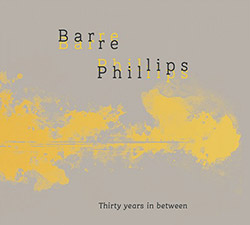
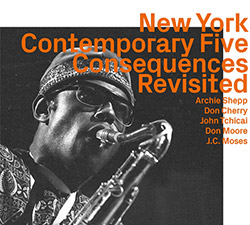


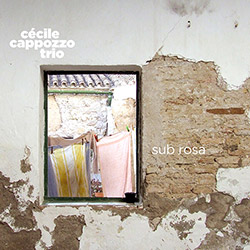


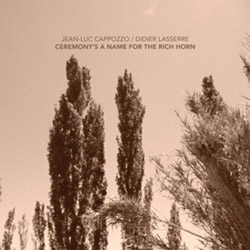






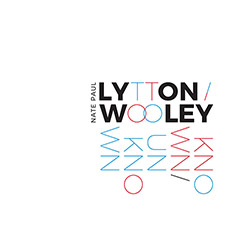

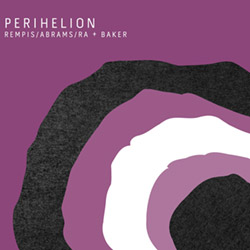
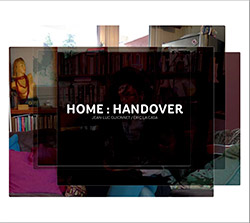







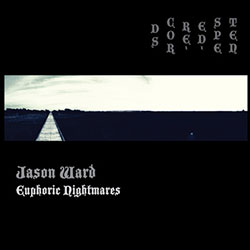


![Guy, Barry / Ken Vandermark: Occasional Poems [2 CDs]](https://www.teuthida.com/productImages/misc4/34849.jpg)
![Novoa / Carter / Mela Trio: Vol.1 [VINYL]](https://www.teuthida.com/productImages/misc4/35236.jpg)


![Elephant9 : Mythical River [VINYL]](https://www.teuthida.com/productImages/misc4/34624.jpg)
![Evans, Peter (Evans / Eldh / Black): Extra [VINYL]](https://www.teuthida.com/productImages/misc4/35279.jpg)

![McPhee, Joe: Straight Up, Without Wings [BOOK]](https://www.teuthida.com/productImages/misc4/35454.jpg)
![Jeck, Philip: rpm [2 CDs]](https://www.teuthida.com/productImages/misc4/35455.jpg)













![Barker / Parker / Irabagon: Bakunawa [VINYL]](https://www.teuthida.com/productImages/misc4/35533.jpg)
![Blaser, Samuel / Marc Ducret / Peter Bruun: Dark Was The Night, Cold Was The Ground [VINYL 10-inch]](https://www.teuthida.com/productImages/misc4/35492.jpg)








![Warren, Kenny (Warren / Hoffman / Ellman): Sweet World [VINYL]](https://www.teuthida.com/productImages/misc4/35451.jpg)




![Blake, Ran / Dave Knife Fabris: Live Amsterdam 2006, First Visit [CD + POSTCARDS]](https://www.teuthida.com/productImages/misc4/35275.jpg)













![DNS: Taking Big Bites Of The Khandas Three Cafes Deep [2 CDs]](https://www.teuthida.com/productImages/misc4/35334.jpg)




![Cleaver, Gerald: The Process [VINYL]](https://www.teuthida.com/productImages/misc4/34966.jpg)




![Alva Noto: HYbr:ID II [VINYL 2 LPs]](https://www.teuthida.com/productImages/misc4/35201.jpg)

![Baron, Derek / Luke Martin: Distinct and Concealed [CASSETTE + DOWNLOAD]](https://www.teuthida.com/productImages/misc4/35079.jpg)

![Lyle, Erica Dawn : Colonial Motels [CASSETTE + DOWNLOAD]](https://www.teuthida.com/productImages/misc4/35080.jpg)









![Sanna, Claudio: Compositori Sardi Contemporanei II [2 CDs]](https://www.teuthida.com/productImages/misc4/35317.jpg)







![Zurria, Manuel: Fame di Vento [3 CDs]](https://www.teuthida.com/productImages/misc4/35167.jpg)

![Granberg, Magnus / Nattens Inbrott / Skogen: Holde Traume, Kehret Wieder! [2 CDs]](https://www.teuthida.com/productImages/misc4/35038.jpg)
![Frey, Jurg: Outermost Melodie [2 CDs]](https://www.teuthida.com/productImages/misc4/35039.jpg)

![Pavone, Jessica: Reverse Bloom [VINYL]](https://www.teuthida.com/productImages/misc4/34895.jpg)




![Modney (Modney / Wooley / Gentile / Roberts / Pluta / Symthe / ...): Ascending Primes [2 CDs]](https://www.teuthida.com/productImages/misc4/34852.jpg)









![Elephant9 with Terje Rypdal: Catching Fire [VINYL 2 LPs]](https://www.teuthida.com/productImages/misc4/35355.jpg)
![Deerlady (Obomsawin, Mali / Magdalena Abrego): Greatest Hits [VINYL]](https://www.teuthida.com/productImages/misc4/34876.jpg)




![Haino, Keiji: Black Blues [2 CDs]](https://www.teuthida.com/productImages/misc4/35109.jpg)



![Surplus 1980: Illusion of Consistency [CD]](https://www.teuthida.com/productImages/misc4/35069.jpg)
![Staiano, Moe: Away Towards the Light [VINYL + DOWNLOAD]](https://www.teuthida.com/productImages/misc4/35037.jpg)



![Caveira (Gomes / Sousa / Abras / Ferrandini): Ficar Vivo [VINYL]](https://www.teuthida.com/productImages/misc4/34643.jpg)
![Gregg, J. J. / David Van Auken: Lunar Prairie [CD w/ DOWNLOAD]](https://www.teuthida.com/productImages/misc4/34611.jpg)

![Coultrain: Mundus [VINYL]](https://www.teuthida.com/productImages/misc4/32439.jpg)
![Mattin: Songbook #6 [VINYL]](https://www.teuthida.com/productImages/misc4/27317.jpg)
![Punkappella: Wake Up [7-inch VINYL]](https://www.teuthida.com/productImages/misc4/17519.jpg)
![Residents, The: WARNING: UNiNC.: Live And Experimental Recordings 1971-1972 [VINYL 2 LPs]](https://www.teuthida.com/productImages/misc4/31521.jpg)
![Coultrain: Phantasmagoria [VINYL]](https://www.teuthida.com/productImages/misc4/30142.jpg)
![Lennon, Sean Ono: Asterisms [VINYL]](https://www.teuthida.com/productImages/misc4/34517.jpg)

![Coley, Byron: Dating Tips for Touring Bands [VINYL]](https://www.teuthida.com/productImages/misc4/17906.jpg)

![Lost Kisses: My Life is Sad & Funny [DVD]](https://www.teuthida.com/productImages/misc4/lostKissesDVD.jpg)